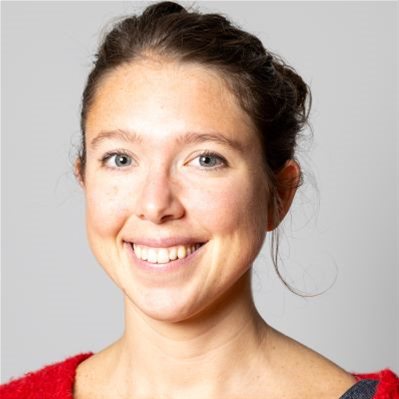Belgian Proposal for a Pilot Actions on Territorial Agenda 2030
The Belgian delegation announced its intention to propose pilot actions in functional urban areas during the ministerial meeting that led to the adoption of the territorial agenda 2030
Sandrine De Meyer

Sandrine De Meyer
How to limit land take and urban sprawl and combat soil sealing at the level of cities of all sizes and functional urban areas.
The objective of the pilot actions is to facilitate collaboration in functional urban areas and cities of all sizes to protect open spaces and limit urban sprawl.
The Belgian delegation announced its intention to propose pilot actions in functional urban areas during the ministerial meeting that led to the adoption of the territorial agenda 2030 in November 2020. The pilot actions have since been specified as centring around land take and urban sprawl, which are very important to the three Belgian regions.
Belgium is a very urbanised country in Europe, with dense periurban areas, which makes it essential to shift towards a more sustainable land use policy. The protection of high-quality open spaces and the prevention of urban sprawl are intrinsically linked to a controlled densification of urban areas. Functional urban areas are therefore the right level at which to reflect on these issues and consider solutions that involve cooperation between regions and cities of all sizes.
The thematic delineation of the pilot actions is quite broad, and our first reflections include:
the functional reinforcement of existing open spaces, that is the valorisation, preservation or restoration of open spaces in cities of all sizes and functional areas;
the densification of urban mobility nodes;
the development of integrated projects and approaches in specific territories;
the greening of the public domain in densely built-up cities to achieve a more qualitative and controlled density.
The issue of soil sealing is particularly topical in the context of climate-related hazards, as the Walloon Region is still struggling to deal with the consequences of the summer’s severe floods.
Planning for natural disasters, reconciling environmental impetus with housing needs, and preserving agricultural land, forests and open spaces are among the most important objectives of the planning policies of the three regions. Zero net land take is a policy objective in Flanders and Wallonia, while the Brussels Region is currently working on quality densification and, more specifically, on the issue of reconciling urban density with quality of life and the need to renaturalise the city, especially the dense zones.
Zero net land take is a policy objective in Flanders and Wallonia, while the Brussels Region is currently working on quality densification
The pilot actions offer an opportunity to create synergies between the territorial agenda 2030 and the urban agenda, as they make makes concrete connections with current and future urban agenda partnerships. We intend to capitalise on what has been produced by the partnership on sustainable land use and nature-based solutions. Connections with the future partnership on greening cities could also be explored.
The pilot actions also contribute to both objectives of the territorial agenda 2030 – a Green Europe and a Just Europe – and especially a ‘healthy environment’ and 'functional Europe’. In addition, they are embedded in various international (e.g. SDGs) and European (e.g. green deal) agendas. They will also capitalise on European and national studies.
The pilot actions also contribute to both objectives of the territorial agenda 2030 – a Green Europe and a Just Europe – and especially a ‘healthy environment’ and 'functional Europe’
The Brussels periphery is a dynamic and complex territory that faces major planning challenges. Two studies launched in cooperation with the Brussels and Flanders regions are under way on the metropolitan area.
The first study, ‘OPEN Brussels’, aims to develop an ambitious and common vision for a sustainable and regionally coherent network of open spaces in and around Brussels.
The second study, ‘20th century urbanization in and around Brussels’, aims on the one hand to analyse how the 20th century periphery is characterised and on the other hand to define ambitions for its development in the 21st century. Two regions are intertwined here, but deal with the pressure of urbanisation in very different ways. The researchers are looking for possible development scenarios for the transformation of these car-oriented, suburban neighbourhoods in and around Brussels into more sustainable and high-quality neighbourhoods. One of the issues that the researchers plan to work on is‘how to put water back in the heart of neighborhoods to make it a common good to strengthen neighborhood life and improve the quality of life’.
The third study aims to clarify the notion of land artificialisation and to identify ways to achieve zero net land artificialisation by 2050.
Each year, about 12 km2 of land is artificialised in Wallonia, mainly for residential building. It is mostly agricultural land that is affected. The Walloon government, like others in Europe, wishes to reduce the consumption of the non-renewable resource that is soil.
Envisaged outputs and results
Concretely, a first case study would investigate the polycentric structure of the Brussels metropolitan areas that extend into the two other regions.
Other case studies could be on urban sprawl of areas of small and medium-sized cities.
The first objectives are to develop recommendations on how existing planning tools can incorporate the new data, and propose integrated and cooperative projects and approaches in specific territories, which will make it possible to respond to common challenges (e.g.car-oriented mobility, urban sprawl and the role of ecosystem services).
At the European level, much of ESPON’s research will be very valuable for the pilot actions, and a first step, conducted by ESPON, will be to extract relevant information and data from the research, such as from METRO, and the SPIMA, FUORE, GRETA and SUPER projects.
At the national level, the pilot actions will capitalise on past and ongoing studies.
Sandra Di Biaggio, Senior Project Expert - Policy Analysis and Project Development ESPON EGTC